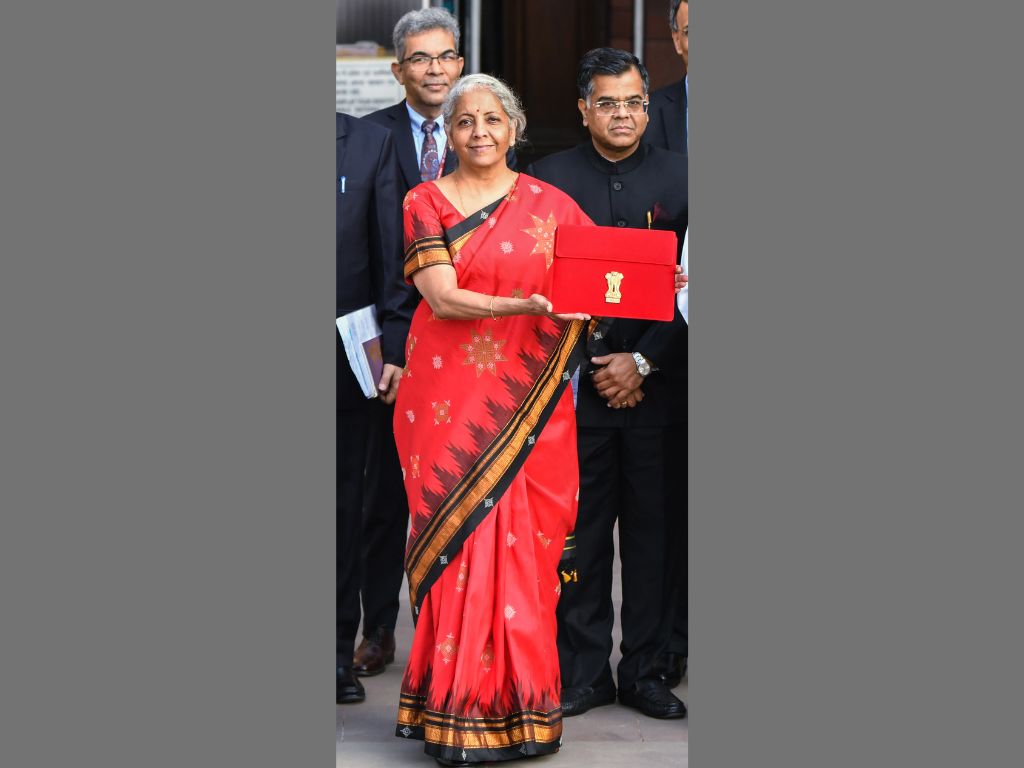- Saturday, July 27, 2024

By: Dr Prem Lal Joshi
Indian finance minister Nirmala Sitharaman on Wednesday (1) presented her fifth annual budget in the parliament.
The following are some highlights and comments on this budget from me.
*Major adjustments made to the nation’s personal income tax system were one of the Union Budget 2023’s standout characteristics. In the new tax system, the maximum tax rebate amount rose from Rs 5 lakh (£4,961) to Rs 7 lakh (£6,945) along with a Standard Deduction of Rs 50,000 (£496). Those under the old income tax system felt extremely let down because they were not granted any incentives. The highest tax rate in the nation has decreased from 42.74 per cent to 39 per cent. The new tax structure, which will be the default system, has five slabs instead of six.
Since the government can now borrow money from international markets at low interest rates, it appears that the current administration’s philosophy and intention are to ensure that the taxpayer citizens switch from the previous regime to the new one.
This is because the administration does not want to encourage national savings. It appears that the government wants to promote spending rather than saving so that the economy can get a big boost.
Nevertheless, cell phones and televisions will become more affordable for people with middle-class wages when customs duties are reduced. Eight hundred million people will continue to get free food in the coming year.
*The Mahila Samman Savings Certificate, a new scheme for women, was unveiled by Nirmala Sitharaman. For a maximum deposit of Rs 2 lakh (£1,984), the new small savings scheme would give an interest rate of 7.5 per cent.
*The business strategy for advancing agriculture is also seen in the budget. In the final complete budget before the general elections next year, the government identified seven priority areas. According to Sitharaman, these categories include the financial sector, infrastructure, and investment, young power, green growth, reaching the last mile, and inclusive development.
*According to the finance minister, capital investment spending will increase by 33 per cent to Rs 10 lakh crore (£99.2 billion) in the upcoming fiscal year, or 3.3 per cent of GDP in the 2023–2024 fiscal year. Youth would have additional chances for employment and training as a result.
*Rs 20 lakh crore (£198.4 billion) have been set as the target for agricultural loans, and in yet another populist move, the PM Awas Yojana budget has seen a 66 per cent boost to nearly Rs 79,000 crore (£7.8 billion). Additionally, the budget considers corporate agricultural development.
*There are some positive developments for the MSME (ministry of micro, small & medium enterprises) sector. They have long requested this, so the idea to extend debt restructuring by a year is a positive step.
*The finance minister announced an Rs 2.4 lakh crore (£23.8 billion) expenditure for the railroads. This is four times the amount allocated in the budget from the previous year and the largest in over 10 years. She said, “This is approximately nine times the outlay made in 2013-14,” when comparing it to the final year of the United Progressive Alliance government led by the Indian National Congress.
*The government is aiming to produce 5 MT of green hydrogen by 2030 as part of its green budget and infrastructure development budget, which focuses on the transition to green fuel. Only transient employment results from infrastructure development.
*The hospitality and tourism industries collected a sizable sum. But it would all depend on how confident individuals were in their ability to travel and eat safely. There are significant issues with this sector’s supply chains.
*The updated forecast for the current fiscal year will maintain the fiscal deficit objective of 6.4 per cent.
The 2023 budget is more of a balanced or somewhat smart budget rather than a populist or reforming budget. However, I am concerned about how the budget will guide growth and control inflation in the nation.
The budget seems to fall short in this area.
(The opinion expressed in this article is the author’s own)